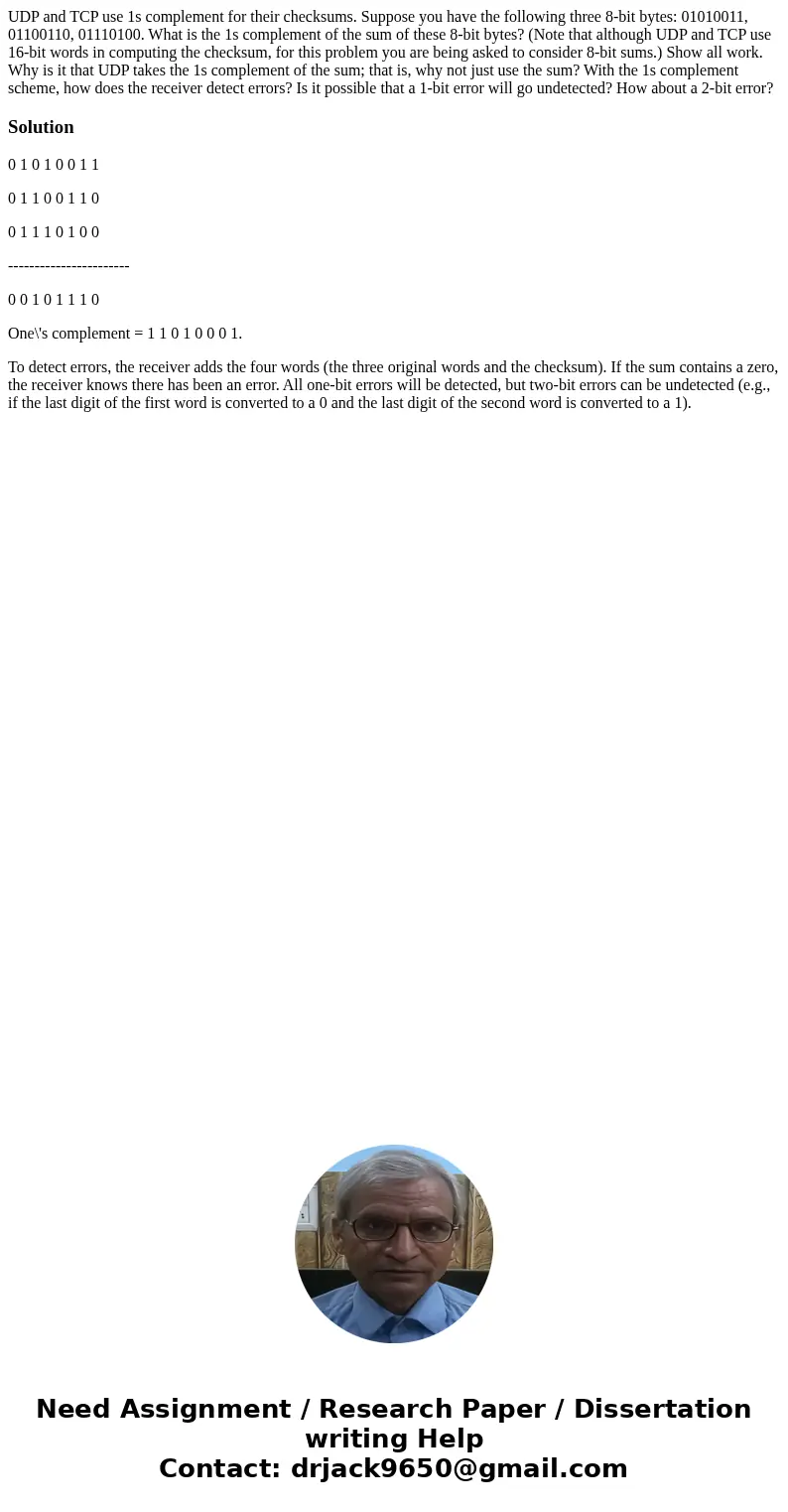UDP and TCP use 1s complement for their checksums Suppose yo
UDP and TCP use 1s complement for their checksums. Suppose you have the following three 8-bit bytes: 01010011, 01100110, 01110100. What is the 1s complement of the sum of these 8-bit bytes? (Note that although UDP and TCP use 16-bit words in computing the checksum, for this problem you are being asked to consider 8-bit sums.) Show all work. Why is it that UDP takes the 1s complement of the sum; that is, why not just use the sum? With the 1s complement scheme, how does the receiver detect errors? Is it possible that a 1-bit error will go undetected? How about a 2-bit error?
Solution
0 1 0 1 0 0 1 1
0 1 1 0 0 1 1 0
0 1 1 1 0 1 0 0
-----------------------
0 0 1 0 1 1 1 0
One\'s complement = 1 1 0 1 0 0 0 1.
To detect errors, the receiver adds the four words (the three original words and the checksum). If the sum contains a zero, the receiver knows there has been an error. All one-bit errors will be detected, but two-bit errors can be undetected (e.g., if the last digit of the first word is converted to a 0 and the last digit of the second word is converted to a 1).

 Homework Sourse
Homework Sourse